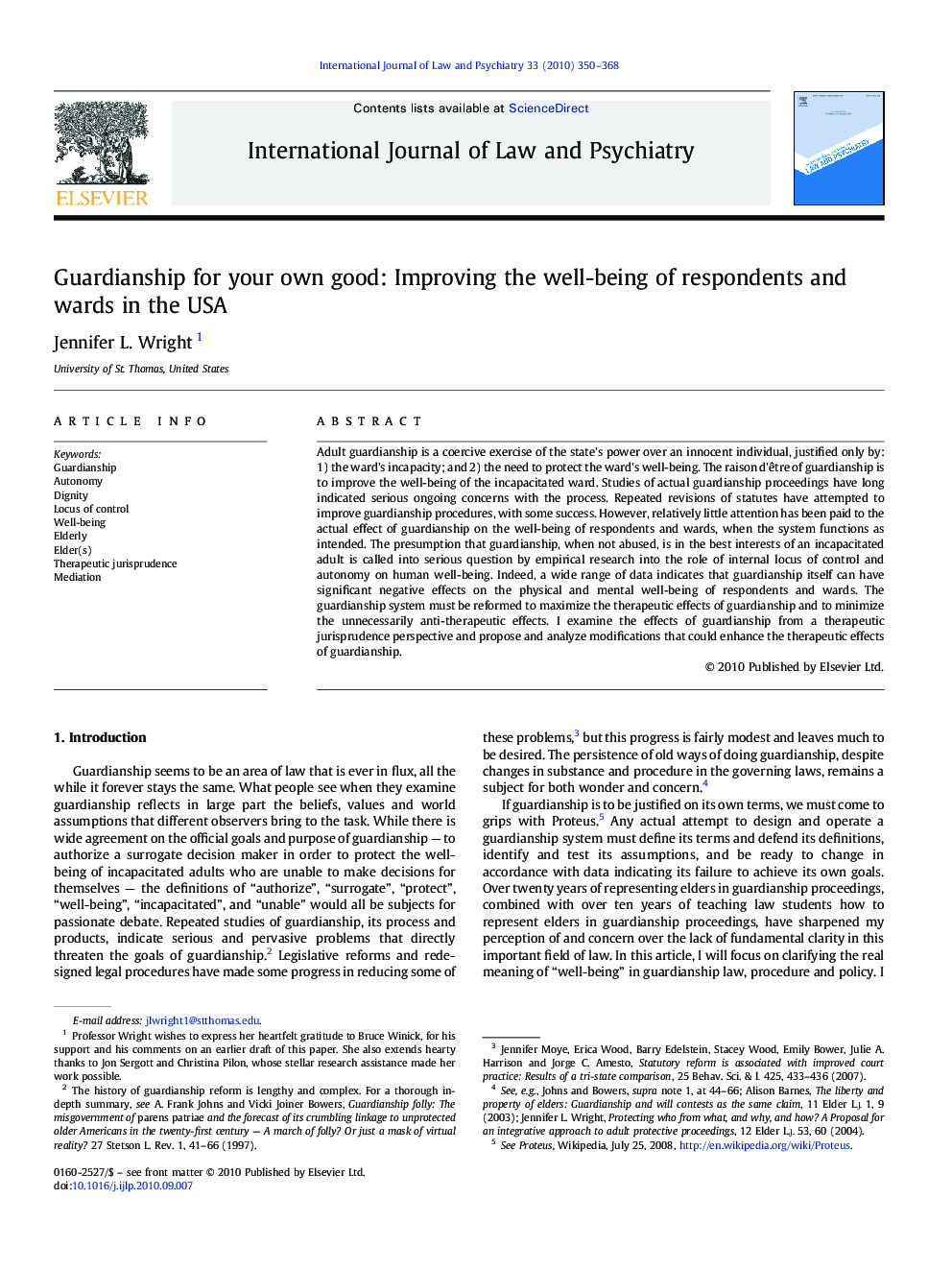| Article ID | Journal | Published Year | Pages | File Type |
|---|---|---|---|---|
| 101159 | International Journal of Law and Psychiatry | 2010 | 19 Pages |
Adult guardianship is a coercive exercise of the state's power over an innocent individual, justified only by: 1) the ward's incapacity; and 2) the need to protect the ward's well-being. The raison d'être of guardianship is to improve the well-being of the incapacitated ward. Studies of actual guardianship proceedings have long indicated serious ongoing concerns with the process. Repeated revisions of statutes have attempted to improve guardianship procedures, with some success. However, relatively little attention has been paid to the actual effect of guardianship on the well-being of respondents and wards, when the system functions as intended. The presumption that guardianship, when not abused, is in the best interests of an incapacitated adult is called into serious question by empirical research into the role of internal locus of control and autonomy on human well-being. Indeed, a wide range of data indicates that guardianship itself can have significant negative effects on the physical and mental well-being of respondents and wards. The guardianship system must be reformed to maximize the therapeutic effects of guardianship and to minimize the unnecessarily anti-therapeutic effects. I examine the effects of guardianship from a therapeutic jurisprudence perspective and propose and analyze modifications that could enhance the therapeutic effects of guardianship.
